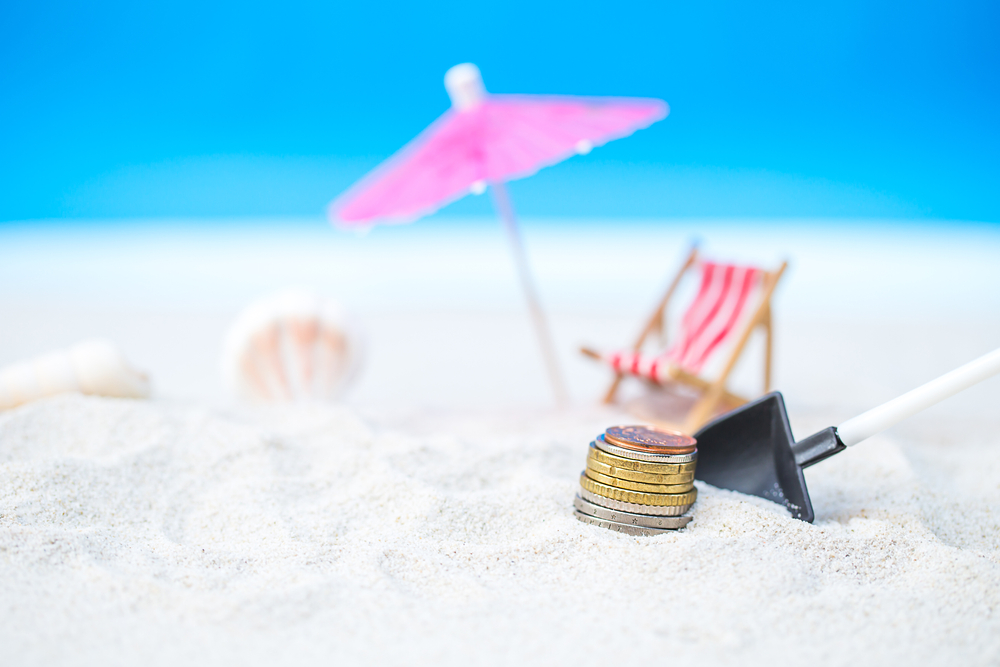Budget-conscious holidaymakers are being told of the best hacks to help make their holiday funds go further.
UK residents spent £72.4 billion on visits abroad in 2023, which is £13.9 billion more than the previous year.
Now, price comparison experts at Quotezone.co.uk are sharing tips for Brits to make the most of their money whilst holidaying abroad this summer.
Despite the cost-of-living crisis causing household budgets to stretch, Britons are continuing to prioritise holidays. There were 86.2 million visits abroad from UK residents in 2023.
Cost-cutting measures and some forward planning can really help when it comes to getting the most out of holiday budgets.
Applying for a travel credit or debit card, taking out a specific prepaid travel card, exchanging money ahead of time and purchasing online travel money can make the difference when it comes to cutting holiday spend.
Planning how and when to take cash out before going abroad will also help avoid hefty administration fees; for instance, try and avoid exchanging money at the airport, they can charge over 10% extra than the more competitive bank or high street exchanges.
Greg Wilson, Founder and CEO of Quotezone.co.uk said: “According to recent research, holidays are on the up and the most popular reason for UK residents to travel abroad, however getting prepped for holidays can be a stressful time, especially now that there are so many options for taking your cash with you. We’ve compiled a handy list to help holidaymakers find savings and get a relaxing start to their holiday.
“It’s also worth noting that standard travel insurance policies don’t always cover loss or theft of cash, so if holidaymakers intend on taking a large amount of cash with them, it would be worth speaking to their insurance provider and adding on any additional cover they need.”
Quotezone.co.uk’s tips on making travel money go further;
Exchange money before getting to the airport
It might seem convenient and time efficient to change your money into the local currency whilst waiting at the airport, but there are often hefty service fees added on top. Research shows that some airports charge between 10% – 13% more than high street or bank exchanges.
Withdrawing foreign currency
When taking out cash at an ATM machine abroad, always select the option to withdraw in the local currency or else you could be charged for a higher exchange rate. The same goes for spending money – if given the chance, choose to spend money in the local currency on card machines. Also be on the look out for tampered machines and if possible use ATMs at local bank branches for extra security.

Travel debit cards
Debit cards for travel are also available without the non-sterling transaction fees. Many banks offer these cards, but as it’s a debit account, money will need to be added to the card before use.
Prepaid travel cards
Travel cards that are designed to be used abroad will need to be prepaid but the exchange rate will be locked in, instead of getting the rate at the time of spending as you would with a credit or debit card so this could unlock some savings. Certain businesses won’t accept prepaid travel cards such as car rental firms, so it’s important to be mindful of where you’ll be spending. As these cards are prepaid, they are also a good way to manage your budget whilst abroad. Some travel cards have an initial admin fee of approximately £5 to send you a physical card you can use at ATMs, however there are other options available for free, so it’s worth shopping around. Be aware not all travel cards are free to use abroad either, some will charge for ATM cash withdrawals so be sure to do your research.
Consider purchasing online travel money
It’s worth looking at what the online exchange rates are offering to customers before heading out to the high street or local bank. If you’re travelling to a less popular holiday destination then many in-person stores won’t have the currency in stock, so ordering online may be the betteroption.
Travel credit cards
Specialist credit cards for spending abroad do not add an extra fee for non-sterling payments, which is typically around three percent for your credit card used at home. However, as with any credit card, it’s important to be able to repay the amount back in full every month, or else the exchange rate could change. Note credit cards normally offer additional protection should anything go wrong with your purchase – so booking key aspects of your holiday with your credit card, such as your accommodation, could add an additional level of security.
Quotezone.co.uk helps customers find savings on household bills and essentials, compare prices at https://www.quotezone.co.uk/





